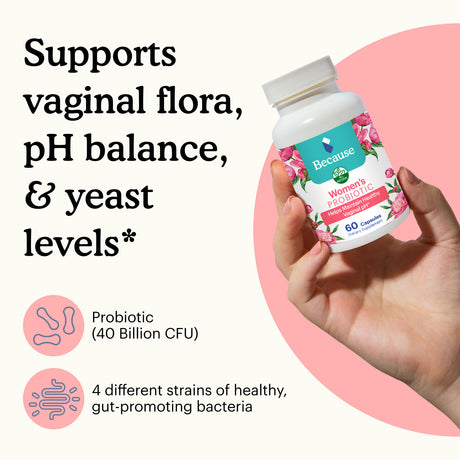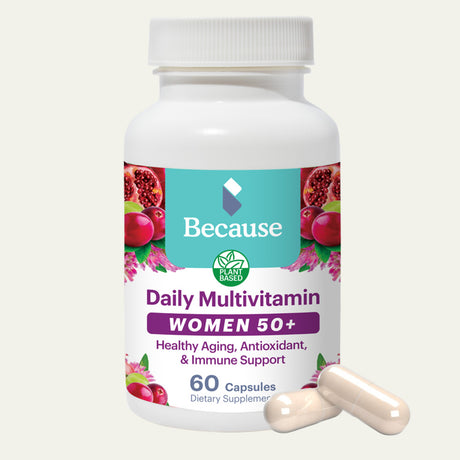Urinary tract infections (UTIs) are the most common infections diagnosed and treated on an outpatient basis in the U.S. Symptoms of these infections include a burning sensation upon urination, frequent urination, a persistent urge to urinate, and abdominal pain and pressure.
Some men and women experience frequent UTIs and look for ways to prevent UTIs. Although it’s not possible to completely prevent bladder infections and other UTIs, there are things that people can do to lower their risk. Is cutting back or avoiding sugar one of them? Read on to find out.
What Causes Urinary Tract Infections?
Most UTIs are bacterial infections, meaning that they happen due to the effects of bacteria. Escherichia coli or E. coli is the most common cause. This bacteria is often found around the anus due to its presence in feces. When the bacteria gets introduced into the urinary tract through the urethra, it can multiply and give rise to an infection. UTI symptoms happen when the body responds to the infection by triggering an inflammatory response.

Can Sugar Cause a UTI?
Bacteria is what causes UTIs, but some things can make you more susceptible to developing an infection. A diet high in sugar is one of them. Keep reading to find out why sugar intake can put you at a higher risk for UTIs.

Effects of Sugar on the Body
Numerous studies have investigated the effects of sugar on the body. Research indicates that sugar may:
- Raise blood sugar or blood glucose levels, especially in people with diabetes
- Contribute to chronic inflammation
- Increase blood pressure levels and raise the risk for heart disease
- Put strain on the liver
- Increase the risk of obesity
- Raise the acidity level of urine
The Connection Between UTIs and Sugar Intake
As you can see, consuming too much sugar can have a number of negative effects on the body. The link between sugar consumption and an increased risk for UTIs has to do with what sugar does to urine, the urinary tract, and the immune system.
How Sugar Feeds and Supports Bacteria
When urine becomes more acidic, it creates an environment more friendly to bacteria in the urinary tract. As a result, bacteria may be able to grow and multiply more easily, making it difficult for the white blood cells and other immune system cells to fight off the germs. In older adults and young children, the impact may be even greater because the immune system may not work as efficiently to begin with.
Sugar can also act as an energy source for bacteria. Like people, bacteria need energy to grow and multiply. Some types of sugar present in the gut can serve as a food source for bacteria, helping it thrive.
The Impacts of Sugar on Urinary Tract Health
As previously mentioned, sugar can contribute to inflammation. Inflamed tissue in the urinary tract may make it easier for bacteria to adhere to the walls of the urethra and the bladder, putting the microorganisms at an advantage and making infections more likely to occur.
Sugar and the Body’s Immune System in Diabetes
For diabetic patients, underlying health issues worsen the effects of sugar. Chronically elevated blood sugar levels can suppress the immune system, resulting in a higher risk for all types of infections. Since extra sugar in the diet can make diabetes harder to control, it can amplify immune system problems and make UTIs more likely to occur and more difficult to treat.

Can Eating Sugar Make a UTI Worse?
It’s possible that eating sugar could make a UTI worse. Sugar can provide food for bacteria and cause your urine to become more acidic, helping the microbes responsible for the infection to multiply and thrive.
Unfortunately, sugar is present in a number of foods, including many of the cranberry juice products that people drink to promote bladder health. It’s also unexpectedly found in processed foods like condiments, salad dressings, and frozen and prepared meals. As a result, it’s a good idea to read labels carefully to find out how much added sugar is present in foods.
Does Cutting Sugar Lower Your Risk of UTI?
How much of an impact cutting back on sugar might have on the risk of UTIs has yet to be explored by researchers. But we do know enough to say that reducing sugar intake may help lower the likelihood of UTIs. In addition, cutting back on sugar is a key part of a healthy diet due to the other effects that sugary foods have on the body.
More Ways to Reduce the Risk of UTIs
If you’re prone to frequent urinary tract infections, the good news is that there is a lot you can do to lower your risk. In addition to cutting back on sugar, follow these tips to help prevent UTIs and promote urinary tract health.
Try Other Dietary Modifications
Sugar isn’t the only bladder irritant that may be present in your diet. Other foods and beverages that can irritate the bladder include:
- Caffeinated beverages, like tea, coffee, and energy drinks
- Alcohol, including wine, beer, spirits, and cocktails
- Acidic foods like vinegar, tomatoes, and tomato-based products
- Acidic fruits like lemons, oranges, and other citrus fruits
- Spicy foods like jalapenos and hot sauce
- Artificial sweeteners, such as aspartame and saccharin
Not everyone is sensitive to all bladder irritants. For example, you may find that switching to herbal tea instead of black tea with caffeine eases irritation, but that cutting back on acidic fruit has no effect.
Signs of bladder irritation are similar to the symptoms of a bladder infection and include painful urination, abdominal discomfort, and needing to urinate more frequently. Keeping a journal of symptoms and the things you eat and drink can help you identify the foods and beverages that you’re sensitive to.

Make Lifestyle and Hygiene Changes
By making changes to your lifestyle and hygiene habits, you can further reduce the risk of UTIs. Some changes that could benefit you include:
- Drinking enough water and other fluids to support urine production
- Wearing breathable cotton underwear and avoiding thongs, which can cause irritation
- Wiping from front to back when you use the bathroom
- Urinating after sexual intercourse to flush out bacteria
- Avoiding harsh soaps, personal deodorants, and feminine hygiene products that contribute to irritation
- Avoid lubricants that contain flavoring agents and sugars
Uncontrolled diabetes and other medical conditions can raise your risk of UTI. If you have a health condition, following the treatment plan your doctor recommends could help support bladder health.
Use Supplements to Support Bladder Health
There’s no substitute for antibiotics for treating an active urinary tract infection. However, bladder health supplements may help support urinary health and lower the likelihood of UTIs.
One promising supplement is cranberry extract. Cranberries contain compounds called proanthocyanidins that have been shown to interfere with bacteria's ability to adhere to the lining of the urinary tract. As a result, cranberry extract may make UTIs less likely to occur.
Probiotics may also help support urinary health. Good bacteria help to keep the microorganisms in check and aid the actions of the immune system. Supplements that contain vitamin C may also be beneficial because of its role in immune system function.
Looking for a bladder health supplement to reduce the risk of UTIs? Because UTI Defense Daily Supplement contains a blend of vitamin C, cranberry extract, and six strains of Lactobacillus probiotics to support urinary health. Learn more about the supplement and order a bottle today.
Sources:
University of Rochester Medical Center. (2019). An introduction to the epidemiology and burden of urinary tract infections. Retrieved from https://www.ncbi.nlm.nih.gov/pmc/articles/PMC6502976/
Harvard Health Publishing. (2022). The sweet danger of sugar. Retrieved from https://www.health.harvard.edu/heart-health/the-sweet-danger-of-sugar
National Center for Complementary and Integrative Health (NCCIH). (2020). Cranberry. Retrieved from https://www.nccih.nih.gov/health/cranberry















